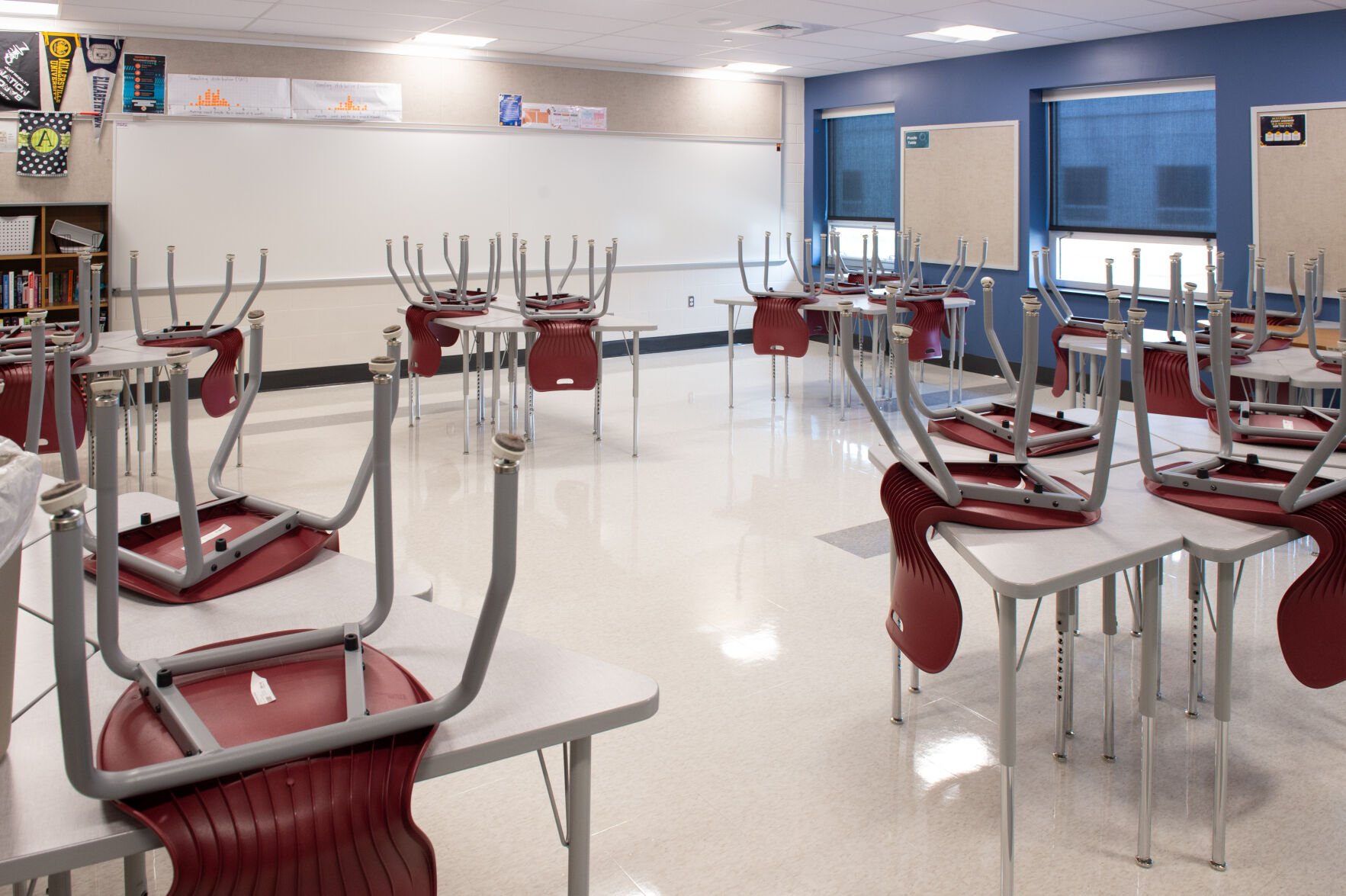Editor's note: This story was updated Jan. 20 at 6:02 p.m. to clarify comments from a conversation with Harold Jordan, nationwide education equity coordinator at the American Civil Liberties Union of Pennsylvania. It was further updated Jan. 24 at 1:04 p.m. to correct a misspelling.
Lancaster County public schools could see cuts to nearly $55 million in federal funding if President-elect Donald Trump succeeds in his promise to eliminate the U.S. Department of Education.
Most public school districts in Pennsylvania receive a slice of the $762 million in Title I money sent to the state, according to the Pennsylvania Department of Education, much of which is intended to support students in underperforming school districts.
Maura McInerney, legal director at the Education Law Center, said slashing funding would be “like pulling the rug out from under” public schools that have for decades relied on federal Title I to provide extra support and services to hundreds of thousands of low-income students in Pennsylvania.
It’s a tall order to dismantle a federal agency, requiring bipartisan backing in Congress. Though Republicans control the House and Senate, their majorities are slim and Trump likely would need buy-in from Democratic lawmakers.
Even if Trump and the Republican Congress eliminate the Education Department, advocates told LNP | LancasterOnline the department’s programs and services would likely continue under management by other agencies. Federal funding for schools, they said, is more likely to be cut than eliminated entirely.
And McInerney said some members of Congress would likely push back on cuts to Title I because it “impacts so many schools across the country.”
But U.S. Rep. Lloyd Smucker of Lancaster County said he agrees with Trump that “we ought to reevaluate the federal government’s role in education.”
READ: Lloyd Smucker votes to ban trans athletes from female sports; bill’s future in Senate unclear
Smucker, who chaired the Pennsylvania Senate Education Committee before he entered Congress, cited the federal department’s “bungled FAFSA rollout” and inconclusive audit results last year to argue “that serious reforms of the department are necessary.”
FAFSA is the Free Application for Federal Student Aid, and Smucker was referring to the months-long delay some students experienced last year in learning whether they qualified for assistance after a new application was introduced.
Control over education policy, he said, should be in the hands of local and state governments.
“With a $36 trillion national debt, we must scrutinize every federal expenditure,” Smucker said.
The Congressional Budget Office found that eliminating a federal department could result in “considerable budgetary savings.” However, cutting a department while moving its responsibilities to other agencies would result in “little or no” savings.
Funding at stake
According to an LNP | LancasterOnline analysis of the county’s 17 school districts’ budgets, the School District of Lancaster receives the most federal money in the county, at roughly $27.7 million. That amounts to roughly 10% of its total $277 million budget.
Adam Aurand, a district spokesman who provided those figures, said cutting Title I funding would likely be “the biggest day-to-day impact” at the School District of Lancaster, though he admitted he was reluctant to speculate about what cutting the department could look like.
Manheim Township School District receives the lowest percentage (0.67%) of its overall budget from federal programs, some $815,000 for the 2024-25 school year. About $603,000 of that total federal revenue came from Title I funding.
Many of Lancaster County’s public schools have remained quiet about the potential for losing federal funds and declined to comment for this story.
Chris Lilienthal, assistant director of communications for the Pennsylvania State Education Association, said public schools in Pennsylvania are already dealing with staffing shortages, especially in the area of special education, and any funding reductions would only exasperate the problem.
He called Trump’s pledge to eliminate the Education Department “a campaign promise that might not have been fully thought out.”
‘Immediate impact’ on civil rights
Harold Jordan, nationwide education equity coordinator at the American Civil Liberties Union of Pennsylvania, said the Trump administration may maintain at least one part of the Education Department — its Office of Civil Rights, which enforces laws promoting equal access to education, like the Civil Rights Act of 1964.
Should the new administration decide to “weaponize” the department’s civil rights functions, he said, it could attack students' rights to go to school free of racial discrimination by revoking guidance surrounding anti-discrimination policies.
“I think that would be an immediate impact,” Jordan said. “I think it also will send a message to some state governments that you don't have to … protect these rights either.”
Trump’s education secretary during his first term, Betsy DeVos, took similar action in 2018 by pulling guidance issued under President Barack Obama that was intended to protect students of color from racial disparities in school suspension policies.
Pennsylvania has its Human Relations Act, which Jordan said can shield students from being treated unfairly due to their race, religion, gender, disability and income.
“Those protections have not gone away,” Jordan said, but the state would need to play a larger role in enforcing and issuing guidance if the federal agency disappears.
READ: Departure of veteran lawmakers could cost Lancaster County in Pa. Legislature
Planning in Pennsylvania
State lawmakers who will decide any potential Pennsylvania legislative responses to changes to federal education policy were split on Trump’s plan for the department.
House Education Committee Majority Chair Pete Schweyer, D-Lehigh County, said he and his caucus will do what they can to support public schools and fight the “Private School President,” referring to Trump and his support for channeling public money to private schools in the form of vouchers.
Though in the minority, state Sen. Lindsey Williams, D-Allegheny County, who sits on the Senate Education Committee, shared a similar sentiment. She called efforts to eliminate the federal agency “a direct attack on students with disabilities and other vulnerable students.”
The agency provides $16 million for school students with disabilities ages 3-5 in Pennsylvania, according to the state education department.
Neither chambers’ Republican education committee chairs — Northumberland County state Sen. Lynda Schlegel Culver nor state Rep. Bryan Cutler, of Drumore Township — responded to requests for comment.
But new House GOP Leader Jesse Topper, last year’s education committee chair, said he has “no cause for concern” if Trump eliminates the department and it may be a positive for schools to avoid “burdensome and heavy-handed federal requirements.”
“Education is best provided on the most local level and is a state mandate here in Pennsylvania,” Topper said.
Opponents of eliminating the federal Education Department have one thing going for them: Republicans dating back to former President Ronald Reagan have sought to nix the agency since it was first established under President Jimmy Carter in 1979. So far, no Republican president or Congress has succeeded.


![School boards, mayors and more: What to watch for in Lancaster County's 2025 municipal elections [analysis]](https://bloximages.newyork1.vip.townnews.com/lancasteronline.com/content/tncms/assets/v3/editorial/c/67/c676004d-2cd8-5bb4-a120-c43c3339fd6c/524dc13d211fb.image.jpg?resize=150%2C108)
![Lancaster County librarian to spend 5 months researching Finland's education system [photos]](https://bloximages.newyork1.vip.townnews.com/lancasteronline.com/content/tncms/assets/v3/editorial/9/44/9445f424-ced4-11ef-a927-679c3ca6ddab/6780460cc0cff.image.jpg?resize=150%2C104)

